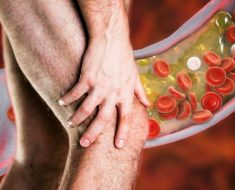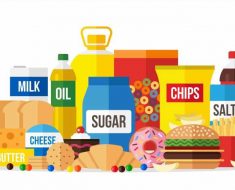Ultra-processed foods: What is the effect on your health?
We use your sign-up to provide content in ways you’ve consented to and to improve our understanding of you. This may include adverts from us and 3rd parties based on our understanding. You can unsubscribe at any time. More info
A stroke describes a life-threatening medical emergency triggered by a cut-off blood supply to a part of your brain. Worryingly, poor lifestyle decisions can lay the groundwork for this serious condition. Now, a new study warns that the food options in your area could also pose a risk.
Between the price of the property and its proximity to grocery stores and services, the local restaurants and food joints probably don’t play a huge role in your decision-making process.
Once you move, you’re eventually bound to flick through your local takeaway flyers and venture out to the nearest food places.
However, a new study warns that the type of food served at your local establishments could be an “important” factor for your stroke risk.
In fact, the research warns that living near burger bars and supermarkets could boost your odds of this medical emergency by 13 percent.
READ MORE: Popular medication taken by over a million people could increase dementia risk by 79%

The findings are based on almost 18,000 people over the age of 50 across the US who were tracked for up to seven years.
Lead author Dr Dixon Yang said: “Our research highlights the potential importance of an area’s retail food options as a structural factor affecting stroke, especially since most participants resided in areas with six times the amount of relatively unhealthy to healthy food choices.”
Dubbed “food swamps”, restaurants and shops selling an abundance of high-calorie, low-nutrient meals and snacks lining the streets pose this higher risk.
Dr Yang continued: “Despite major advances in stroke care, stroke continues to be a significant problem, and some people will remain at risk despite optimal medical treatment.
“An unhealthy diet negatively impacts blood pressure, blood glucose and cholesterol levels.”
All of these health conditions can lay the groundwork for serious health problems, including strokes.
“Independent of one’s own demographics or socio-economic status, living in a neighbourhood with an abundance of poor food choices may be an important factor to consider for many people,” the researcher said.
This means that tucking into too many burgers, pizzas, sausage rolls and chips spells no good news for your health.
READ MORE: Brain tumour patients often report one of two symptoms in their ‘final weeks of life’

The study presented at an American Stroke Association meeting in Dallas is one of the first to look at the specific link between stroke and the consumption of fast food.
Dr Yang and his colleagues analysed the data collected between 2010 and 2016 from participants in the ongoing Health and Retirement Study.
They also used federal information to derive a retail food environment index (RFEI) – the ratio of fast-food restaurants and convenience stores to their healthy counterparts such as grocery stores, farmer’s markets and specialised food shops.
Two categories – scores above or below five – were then created, as they have previously been shown to be an accurate predictor of obesity.

Around 72 percent of the participants lived in areas with a retail food environment index ranked as five or higher.
They had a 13 percent higher risk of incident stroke, compared to those who lived in neighbourhoods with an index score below five.
Dr Yang said: “At this early stage of our research, it’s important to raise awareness that a person’s neighbourhood and food environment are potentially important factors affecting their health, especially among people who may have difficulty in reaching optimal cardiovascular health targets.
“In the future, it may help to focus on community-based interventions or dietary guidance to improve cardiovascular health, thereby, hopefully reducing the risk of stroke.”
Source: Read Full Article





